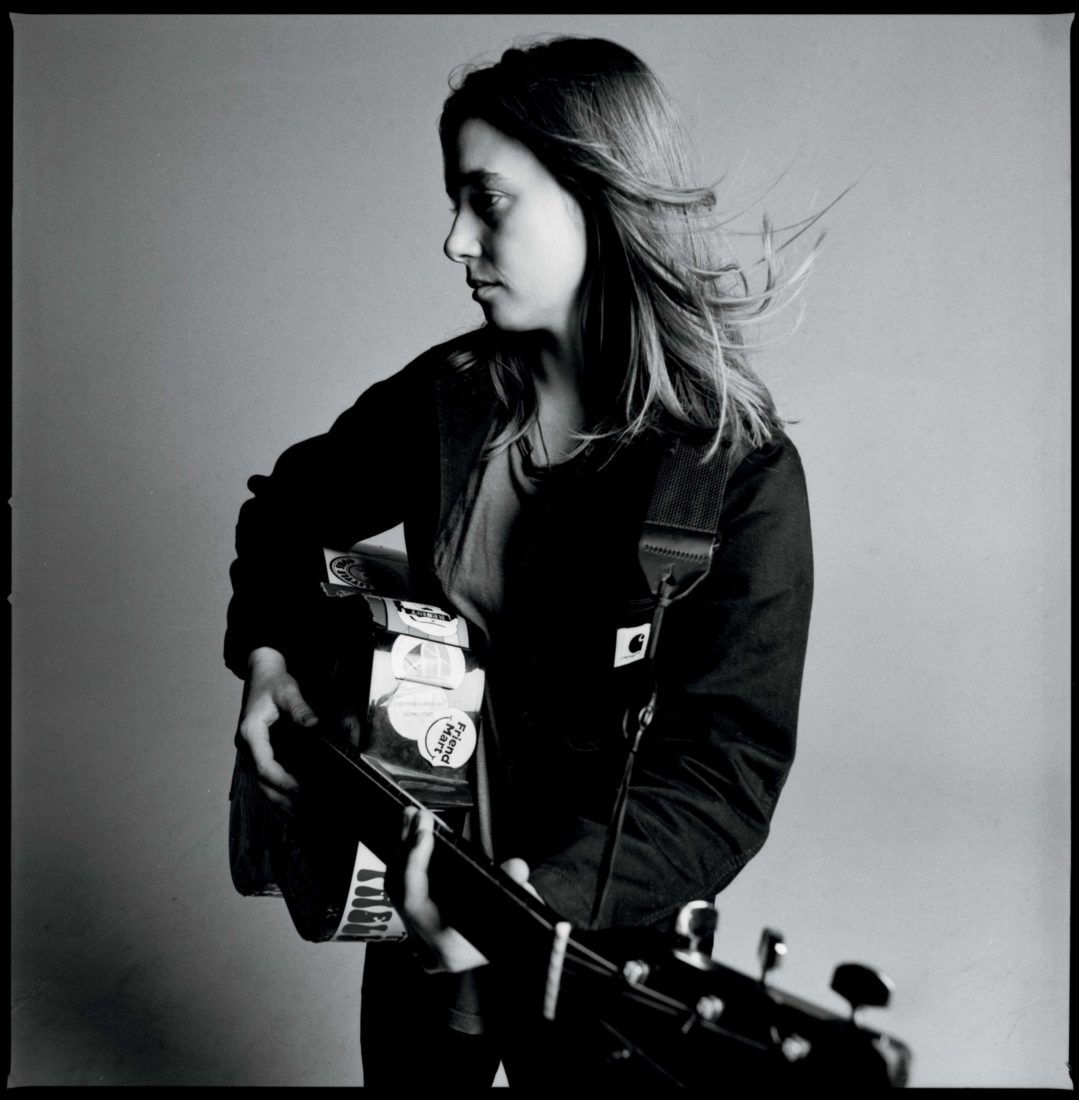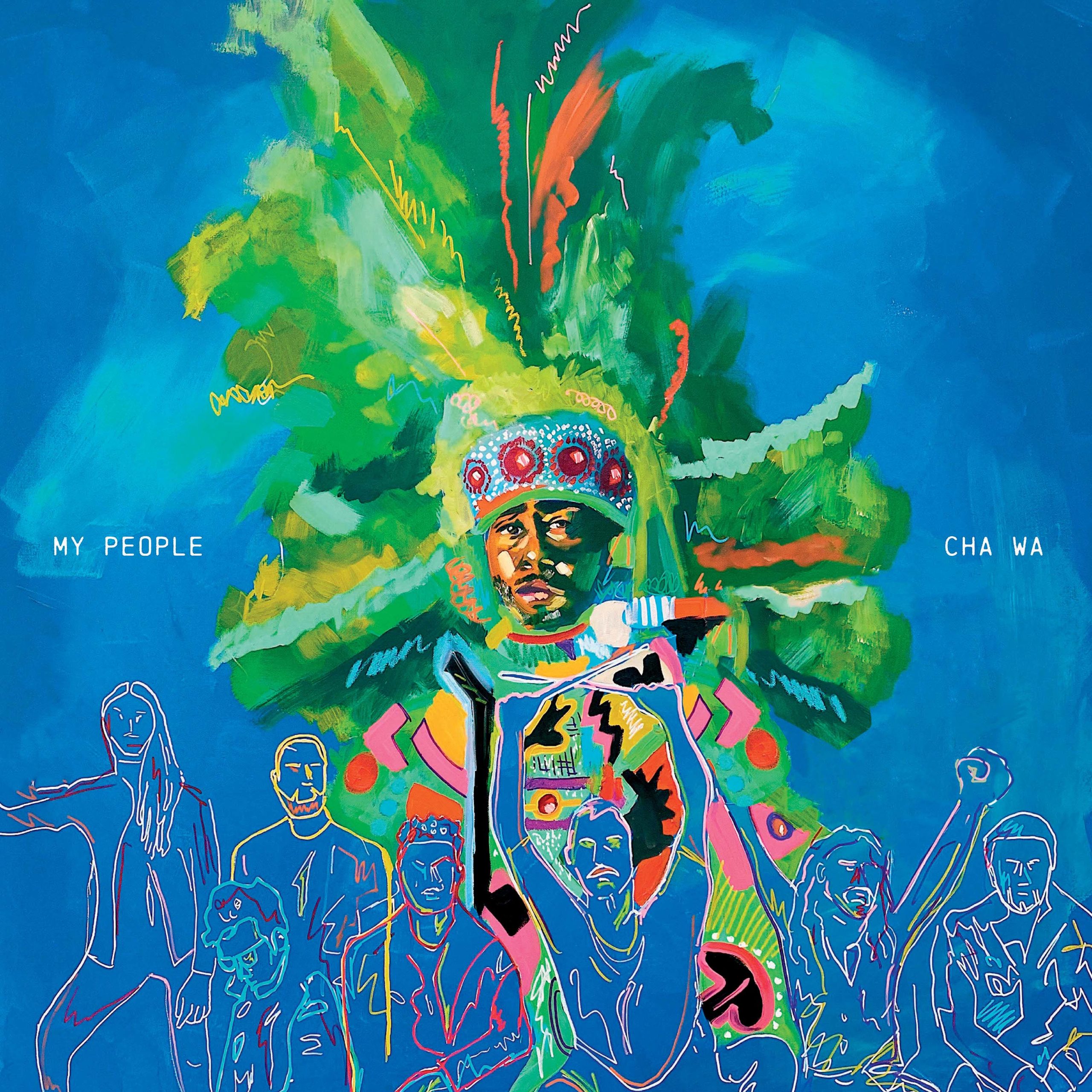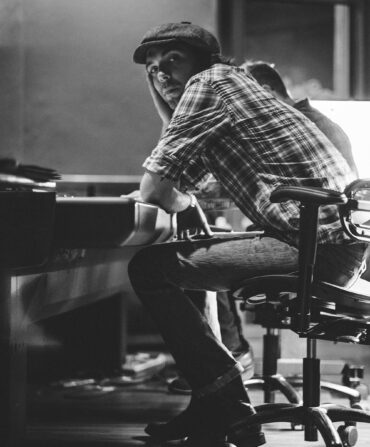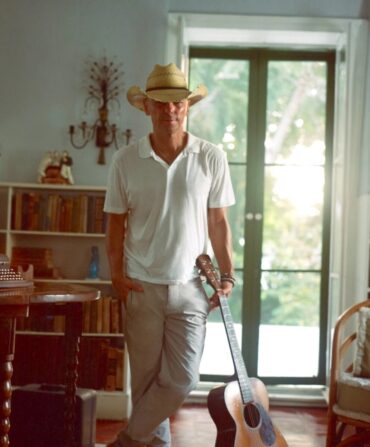“My dog has to pee,” Julien Baker says almost apologetically. We’ve been talking for about ninety minutes, and the twenty-five-year-old Memphis native is affable and chatty on topics ranging from existential philosophy and music theory to how many cups of coffee she’s had this morning. Her dog, Beans, is a hound mix she adopted from a Nashville shelter, and for an artist known for penning first-person, emotionally draining songs, focusing her attention on Beans has been a revelation. As the adage goes, “Did I save the dog or did the dog save me?” Baker concedes it might be more of the latter.
Since her 2015 debut, Sprained Ankle (written in her dorm room at Middle Tennessee State), Baker has galvanized a legion of fans with songs that are extraordinarily personal but allow enough room for others to recognize their own experiences and hurt. Her live shows are hushed, communal affairs, the emotional haymakers often leaving attendees in tears. But after the success of her debut and her 2017 follow-up, Turn Out the Lights, what should have been the best of times for Baker turned into some of the worst.
At the end of 2018, she had just finished touring with fellow acclaimed songwriters Phoebe Bridgers and Lucy Dacus under the moniker boygenius. Though the trio gushed over the creative spark the collaboration had produced, for Baker, who has been open about her substance abuse and mental health struggles as a teen, the joy slipped away when she suffered a relapse that forced her to cancel shows and appearances over the following months. “I had been in this touring machine and everything had been going so fast for years,” she says. “It was like a speeding bicycle that slowed down enough for the wheels to come off. So I just hung out with, like, butterflies that I barely knew because that is so much more comfortable than having to have a vulnerable conversation where you tell someone, ‘I am not okay.’”
Steadying herself in the summer of 2019, Baker poured her experiences into writing the songs that make up her dazzling third album, Little Oblivions, a project she calls “dark as hell” but one that ultimately proved liberating. The album’s weighty grandeur is juxtaposed with sparkling melodies and a keen pop sensibility. The opener, “Hardline,” kicks off with wonky minor-key synth before evolving into what could be a Taylor Swift song sucked into a whirlwind of distortion, while “Song in E,” with its tinkling piano, is one that Billie Eilish might wish she wrote.
“As a songwriter, she does a thing that’s really hard, which is to be open, honest, and emotional without making any mistakes,” says Grammy winner Jason Isbell, a longtime fan who empathizes with Baker’s ups and downs. “It’s hard to write about depression and love and addiction without falling into clichés. Even some of the best songwriters, I think, just go ahead and let the clichés stand because they’re trying to get to the truth. She doesn’t fall into those tropes.”
The most distinctive feature of the album, though, is that Baker has added a fuller sound to her arsenal, including banjo, mandolin, and, for the first time, drums, rather than the spare guitar and piano of her previous efforts. She’s opened the door another crack, revealing a richer self-portrait. “I still have this crazy control hang-up for some reason,” she says. “But I didn’t realize how much I missed collaborating with other people.”
Baker is understandably wary of characterizing Little Oblivions as a redemption project. She declines to give specifics on the events of 2019, though she knows she can be way too hard on herself. “My therapist says I’m the person with the least amount of self-compassion she’s ever seen,” she says wryly. But she’s grateful that she’s been given time to focus on her well-being—and on Beans (who now really needs to be let out). She muses about getting another dog, which she’d name Cornbread, of course. “I never really got the dog thing,” she says. “I was like, yeah, animals, cute. But they’re love in its best form. She’s not even particularly good. She’s not particularly obedient. But I still have this unexplainable bond to her. She’s taught me a lot about myself.”









